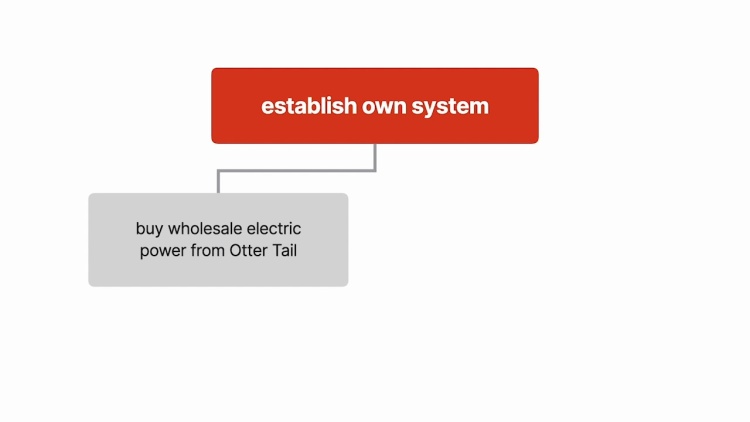Otter Tail Power Co. v. United States
United States Supreme Court
410 U.S. 366 (1973)
- Written by Heather Whittemore, JD
Facts
Otter Tail Power Company (Otter Tail) (defendant) was an electric utility company that sold electricity wholesale to other retailers and directly to consumers in Minnesota, North Dakota, and South Dakota. Otter Tail received 10- to 20-year franchises from towns in which it sold retail electricity. Given the nature of electricity distribution, most towns could only accommodate one electricity-distribution system. Therefore, Otter Tail had natural and legal monopolies for electricity distribution in the towns to which it sold retail electricity. Several towns in which Otter Tail previously had held a franchise attempted to establish municipal systems for distributing electricity. The municipal systems would have had to purchase electricity wholesale and run the electricity through transmission lines owned by Otter Tail. Otter Tail refused to sell electricity wholesale to the proposed municipal systems and refused to allow the municipal systems access to its transmission lines. Otter Tail also made agreements with other electricity suppliers to further prevent the municipal systems from purchasing wholesale electricity, and Otter Tail engaged in litigation to prevent or delay the establishment of the municipal systems. The United States government (plaintiff) accused Otter Tail of using its monopoly power to prevent towns from establishing their own municipal systems in violation of § 2 of the Sherman Act. The district court found that Otter Tail had violated § 2 and enjoined Otter Tail from engaging in its anticompetitive tactics. Otter Tail appealed.
Rule of Law
Issue
Holding and Reasoning (Douglas, J.)
What to do next…
Here's why 907,000 law students have relied on our case briefs:
- Written by law professors and practitioners, not other law students. 47,100 briefs, keyed to 996 casebooks. Top-notch customer support.
- The right amount of information, includes the facts, issues, rule of law, holding and reasoning, and any concurrences and dissents.
- Access in your classes, works on your mobile and tablet. Massive library of related video lessons and high quality multiple-choice questions.
- Easy to use, uniform format for every case brief. Written in plain English, not in legalese. Our briefs summarize and simplify; they don’t just repeat the court’s language.





